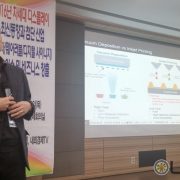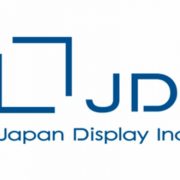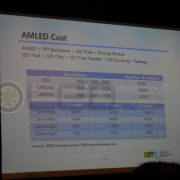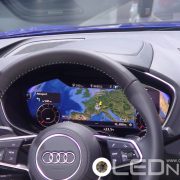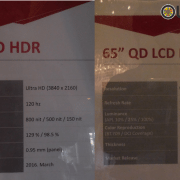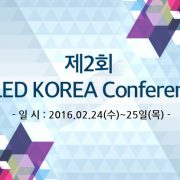Now is the Time to Invest for OLED to be the Next Generation Display
By Hyun Jun Jang
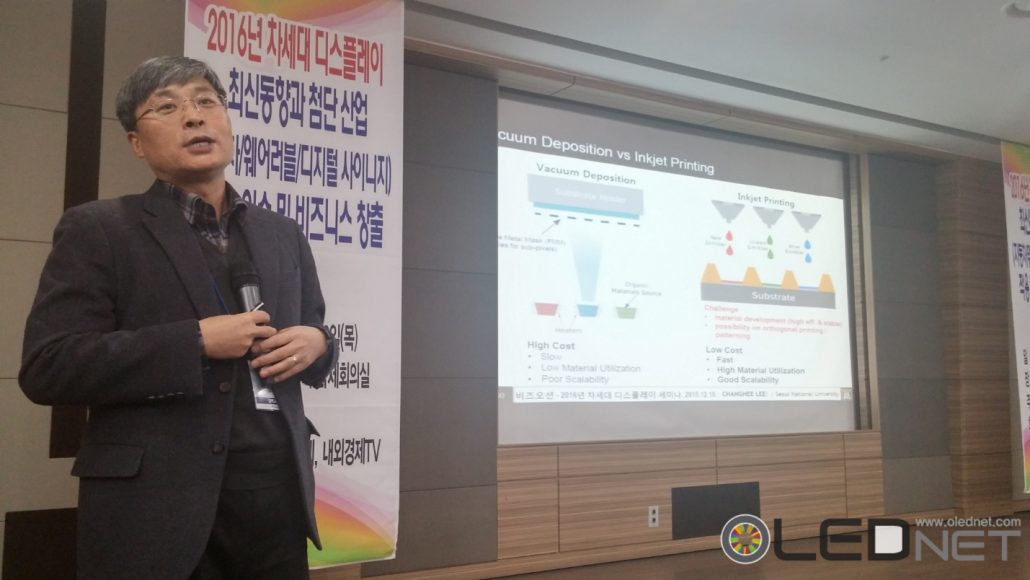
On December 10, a seminar specializing company bizocean held ‘2016 Next Generation Display’s Latest Trend and Cutting Edge Industry Application Issues and Business Creation Seminar’ in Korea Technology Center. Professor Changhee Lee of Seoul National University, the first speaker of the seminar, announced that as OLED will become the technology for future display, now is the time for investment by the companies.
Lee reported that the display follows camera’s resolution, and although resolution has been developed up to UHD, he forecast that it will advance further. He also added that higher the resolution, the display performance that consumers demand will increase.
Regarding the current display market status, Lee explained that as the LCD’s margin is falling the market has to turn to OLED, but it is still expensive and capacity is low. Additionally, from the way consumers are still using the term liquid crystal regarding Samsung’s AMOLED smartphone, Lee speculated that people have difficulty in distinguishing between LCD and OLED. He told the audience that the industry should inform the public of the OLED’s differences from LCD through transparent, flexible displays that show OLED’s superior traits, and open the market through product differentiation strategy.
For the future display, Lee pointed out printing OLED. He explained that although printing OLED’s lifetime, particularly blue’s, falls short compared to vacuum evaporation, it is estimated to reach commercialization stage after 2-3 years. Despite the flaws in terms of materials, Lee reported that the advantages such as reduced production cost, fast tact time, and material usage efficiency will lead to the opening of the market. For these reasons, Samsung and LG are carrying out development.
Lee forecast that LCD, in its maturity stage of the industry life cycle, will lead the market for a while, but OLED technology will rapidly evolve and become the focus of the next generation display market. Regarding OLED TV, Lee mentioned that large area OLED mass production through printing technology is urgent in order to achieve price competitiveness. At present, OLED’s capacity is less than 1/100 of LCD. As such, even if there is demand, supply may not be able to meet it and Lee suggested the need for investment to the companies. He added that if there is low supply when the number of customers is high, the opening of the market could be delayed.
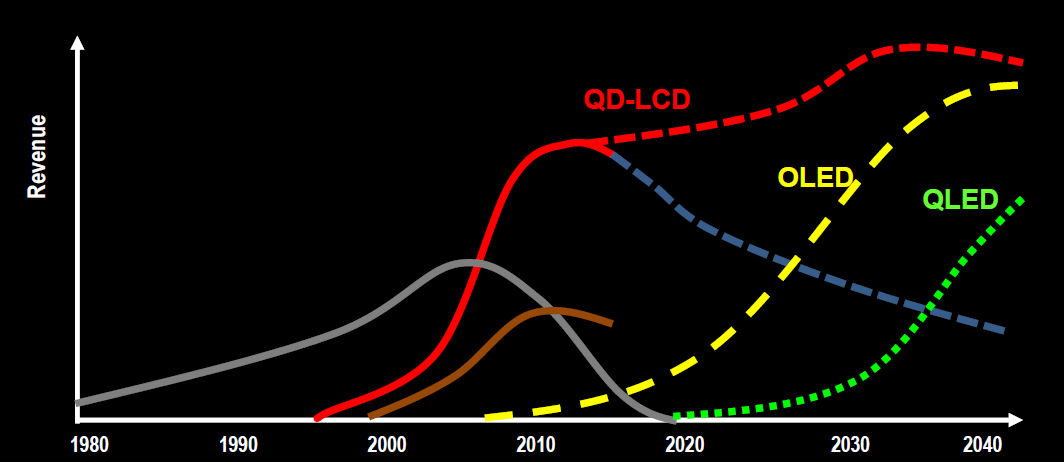
<Display Market Forecast Source: Professor Changhee Lee Presentation Material>
Lee mentioned QLED as another future display technology. QLED has the same structure as OLED but uses quantum dot as the emitting materials, changing colors through different sizes. Lee reported that the color gamut is high as the wavelengths are shorter than OLED emitting materials. Also as the same material is used, QLED has an advantage of reduced material production cost and development of micro display with 2,000 ppi is complete. However, Lee added that as the lifetime is nowhere near sufficient, commercialization stage is still far away.

